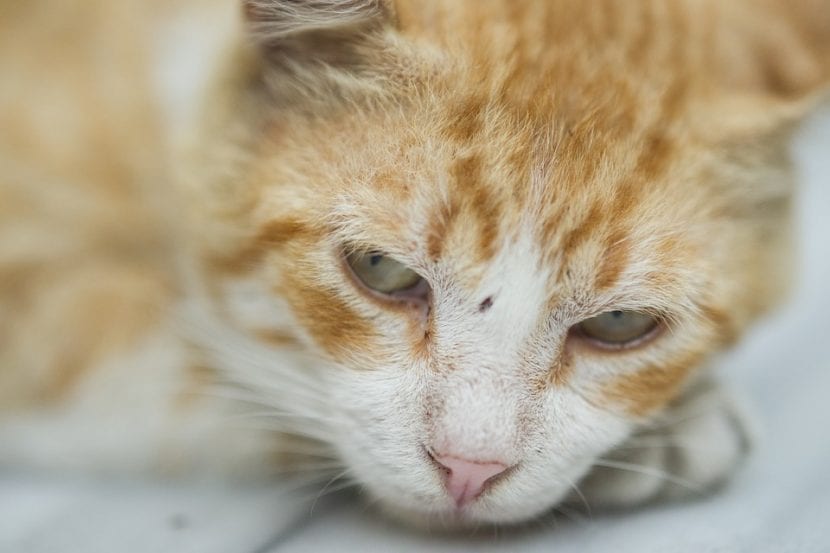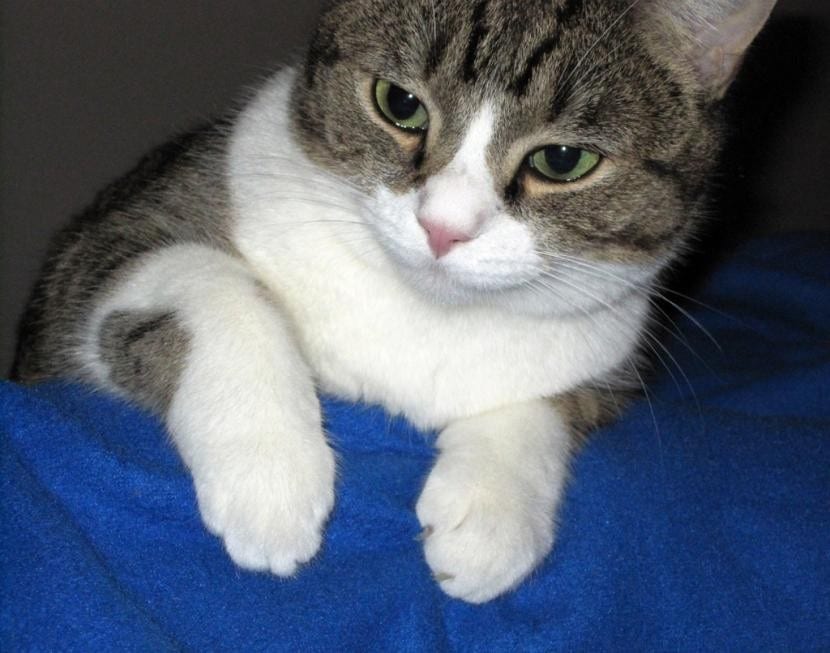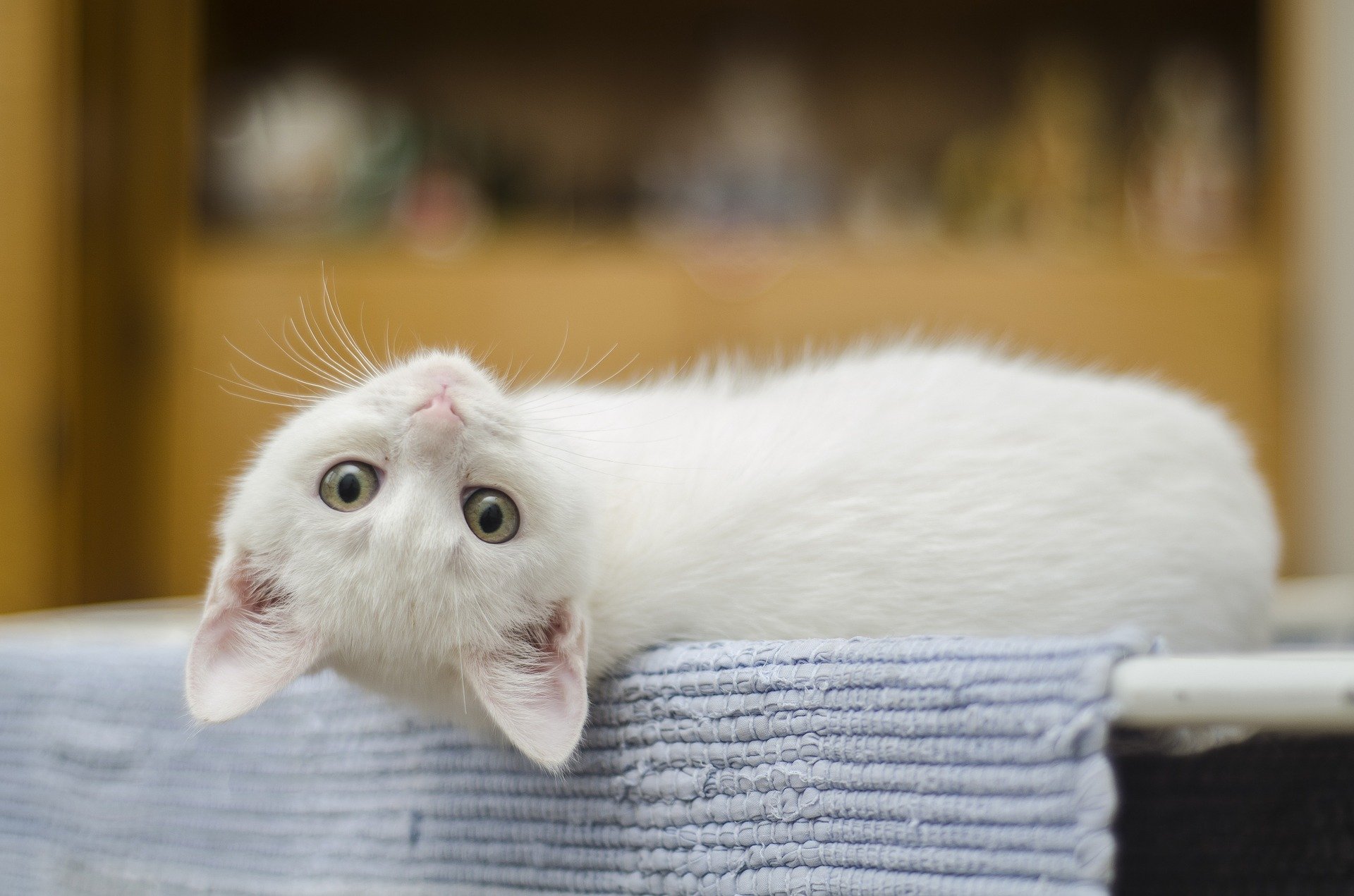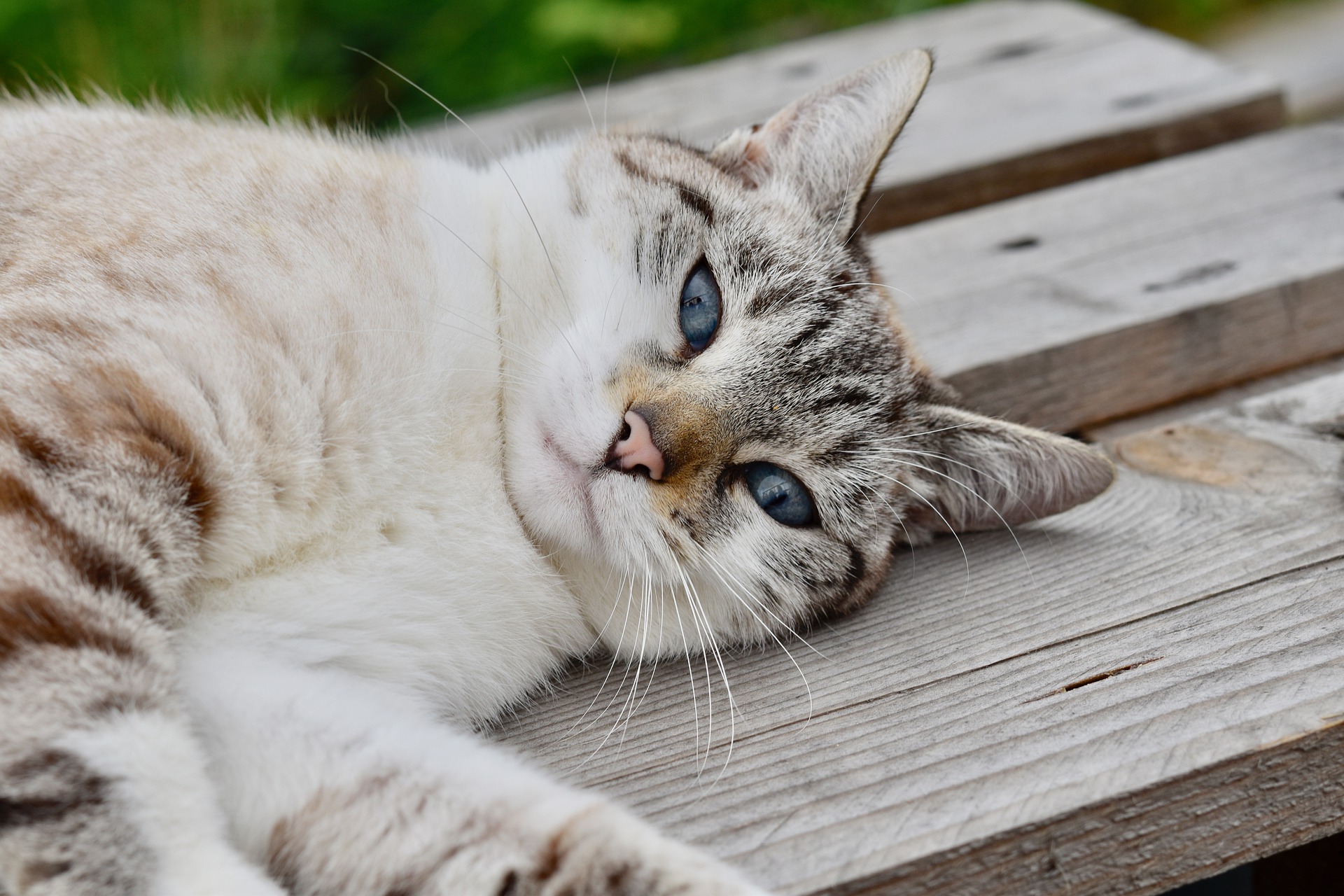
Living with a cat not only means giving him food, water and a safe place to live, but it is also providing help whenever he needs it. Therefore, it is very important to pay attention to the symptoms you may have, such as a swollen belly, which is one of the consequences of ascites or abdominal effusion.
If it happens that I did, read on to learn more about ascites in cats.
What is it?
Ascites, known as abdominal effusion or effusion, is a clinical sign that occurs when an abnormal amount of fluid accumulates in the abdomen, which can come from the blood vessels, the lymphatic system or other organs in this area of the body.
What are the causes?
Causes of Ascites in Cats are the following:
- Feline infectious peritonitis (FIP)
- Right-sided congestive heart failure
- Renal
- Kidney infection
- Kidney stones
- Liver disorders
- Decreased levels of protein in the blood (hypoproteinemia)
- Abdominal cancer
- Trauma with ruptured blood vessels and / or internal organs causing abdominal bleeding
- Ruptured bladder
What are the symptoms?

The most frequent symptoms in cats they are:
- Swollen abdomen
- Lethargy
- Apathy
- Loss of appetite
- Weight gain
- Anorexia
- Vomiting
- Fever (tenths)
- Pain and tenderness to the touch
- Muscular weakness
- Trouble breathing
- Moans and groans
- In severe cases, there may be swelling of the scrotum in cats and of the vulva in cats.
How do you make the diagnostic?
If we suspect that our cat has ascites we should take it to the vet. Once there, perform a physical exam and remove ascites fluid for testing. Also, if you still have questions, you could have an ultrasound and / or abdominal X-ray, urine and / or blood tests, and cultures.
How is it treated?
Treatment will depend on the cause. For example, if it is due to infection, antibiotics will be administered; if it is due to trauma or tumors, on the other hand, the possibility of having a surgical intervention will be evaluated. Still, we have to know that what he always does is to empty the ascites fluid every few hours or days, and give him a low-salt diet.
Can it be prevented?
The truth is that yes. In fact, you just have to do the following:
- Give him a quality diet, rich in animal protein and without grains of any kind.
- Take him to get all the vaccinations he needs.
- Make sure the windows and doors are always closed.
- Do not medicate the cat without first consulting with a veterinarian.
- Prevent the animal from leaving the house.
Does your cat have a bloated stomach?

A cat's internal organs and its abdomen are covered by a lining called the peritoneum. This coating has a liquid that allows the entire interior to move when the cat is in motion. On the other hand, if the feline has swelling in the abdomen or distention, it may indicate that it may have health problems that can even end in death.
When too much peritoneal fluid is produced, it can lead to health problems. Next we are going to detail some causes so that you can detect it as soon as possible in your cat and that in this way you seek help as soon as possible.
Top Cat Diseases and Conditions That Can Cause Ascites
An edema is a basic level of swelling due to an accumulation of fluid within the body and when it affects the abdomen or the stomach area it is when it is ascites. A key symptom of ascites is a bloated stomach, but it is also important to check if your cat stops eating, is gaining or losing weight, has a fever, is doing well in its litter box, etc.
When the cat has fluid pressing on its abdomen, they can have respiratory problems. The vet needs to be able to determine what causes it in order to find the best solution. The main diseases and conditions that can cause cats to have ascites are: physical trauma, heart failure, abdominal organ failure, cancer, or feline infectious peritonitis. Namely:
- Insufficiency of abdominal organs. The failure of any abdominal organ of the cat can cause problems and pain. It is necessary to know what is the origin of the problem of the abdominal organs to find the best treatment.
- Feline infectious peritonitis Another cause of ascites in cats, feline infectious peritonitis, or FIP, is caused by a virus that grows on white blood cells, directly affecting the stomach lining of cats. This condition is dangerous for cats and is not easy to diagnose. It is also difficult to cure.
- Congestive heart failure on the right side. If the heart does not pump blood out of the cat's body well, the condition can be fatal. It is necessary to discover the cause to treat it as soon as possible (heart disease, heartworms, etc.). In young cats it can be a genetic cause and in older ones by age.
- Cancer. Cancer also causes ascites in cats, mainly due to tumors and masses that can anchor in the abdominal cavity of a cat and cause blockages or interruption of the functioning of the organs. Liquids must be filtered.
- physical traumapsycho. Any trauma caused by an accident can lead to ascites in a cat. It will be necessary for a veterinarian to inspect and find out what is happening to put a solution as soon as possible.
Cat recovery
Once the problem is diagnosed and treated, when it has not been too serious, there may be recovery. Fluid can be easily removed from the cat's abdomen, but the cat's full recovery will depend on the underlying cause of the ascites.
To increase the chances of your cat making a full recovery, follow your vet's orders closely and schedule a follow-up appointment with the vet so he can assess how your cat is healing.
Your vet may ask you to change your cat's diet to help prevent fluid build-up. One of the most important changes is reducing your salt intake, which will reduce bloating and water retention.
If the ascites was caused by trauma, it may be appropriate keep your cat indoors so you can monitor you more closely and prevent further injury. You should also keep other pets away from your cat while he recovers if trauma is the underlying cause.
As we have seen, ascites is a problem, but it can be easily prevented.
We hope it has been useful to you 🙂.

My cat has this and she wants to run away from home, I give her diuretics and I take care of her a lot but she has not eaten for a week, I would like to know if I leave her without eating until she wants or do I forcefully give her little by little? I need an answer thank you!
Hi valeria.
I recommend you try to get him to eat something. Try giving him wet cat food (patés for example).
If he doesn't eat, you better contact a vet.
Greetings and encouragement.
Hello I am raising a newborn cat, well it has about 10 days ... but I have not seen that it does pupi ... I am worried please help me
Hi Doris.
At that age you need help. After each feeding you have to pass a gauze or cotton moistened with warm water several times over his ano-genital area. Use a gauze for stool and another for urine.
If he cannot defecate or / or urinate, you should take him to the vet as soon as possible.
Greetings.
Hello, I have my kitten who has a swollen belly, has an appetite but cannot poop and has lost weight, only that his belly worries me because it grows and is hard, I took him to the vet and they did an ultrasound and they told me that he had free fluid in the abdominal moderate and good for sleeping and I don't know what to do
Hi Jennifer.
You can try giving it a small spoonful of vinegar. This can help you relieve yourself. But if not, I recommend you contact a veterinarian.
Greetings.